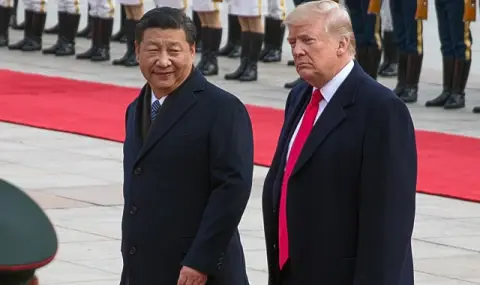US President Donald Trump said he was in no hurry to talk to Chinese President Xi Jinping to try to defuse a new trade war between the world's two largest economies, sparked by his sweeping tariffs on all Chinese imports, Reuters reports.
China imposed targeted tariffs on US imports on February 4 and warned several companies, including Google, of possible sanctions, in a measured response to Trump's tariffs.
"That's good", Trump said at the White House when asked about China's retaliatory tariffs.
The conversation between Xi and Trump is seen as key to a potential easing or delaying tariffs, as happened Monday in talks with Mexican and Canadian leaders.
White House spokeswoman Carolyn Leavitt told reporters that the call between Trump and Xi had yet to be scheduled.
"President Xi did reach out to President Trump to talk about this - perhaps to start negotiations. "So we'll see how that call goes," Leavitt told Fox Business Network.
Beijing's limited response to Trump's imposition of a 10% tariff on all Chinese imports underscored Chinese policymakers' attempt to engage Trump in talks to prevent an outright trade war between the world's two largest economies.
Liu Penggu, a spokesman for the Chinese embassy in Washington, said China hopes Washington will work with Beijing to ensure stable, healthy and sustainable ties between the two countries.
The International Monetary Fund said it was "in everyone's interest to find constructive ways to resolve differences and allow for trade."
Capital Economics, a UK-based research firm, estimated that China's additional tariffs would apply to about $20 billion in annual imports, compared with $450 billion worth of Chinese goods. dollars that are subject to Trump's tariffs.
"The measures are quite modest, at least compared to US actions, and are calibrated to send a message to the US," stressed Julian Evans-Pritchard, head of China Economics at the firm.
On February 3, Trump withdrew his threat of 25% tariffs on Mexico and Canada, agreeing to a 30-day pause in exchange for concessions on borders and criminal enforcement.
